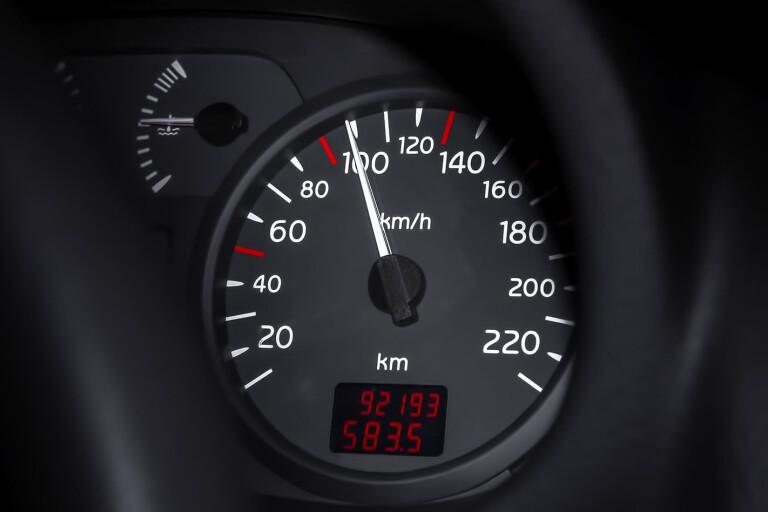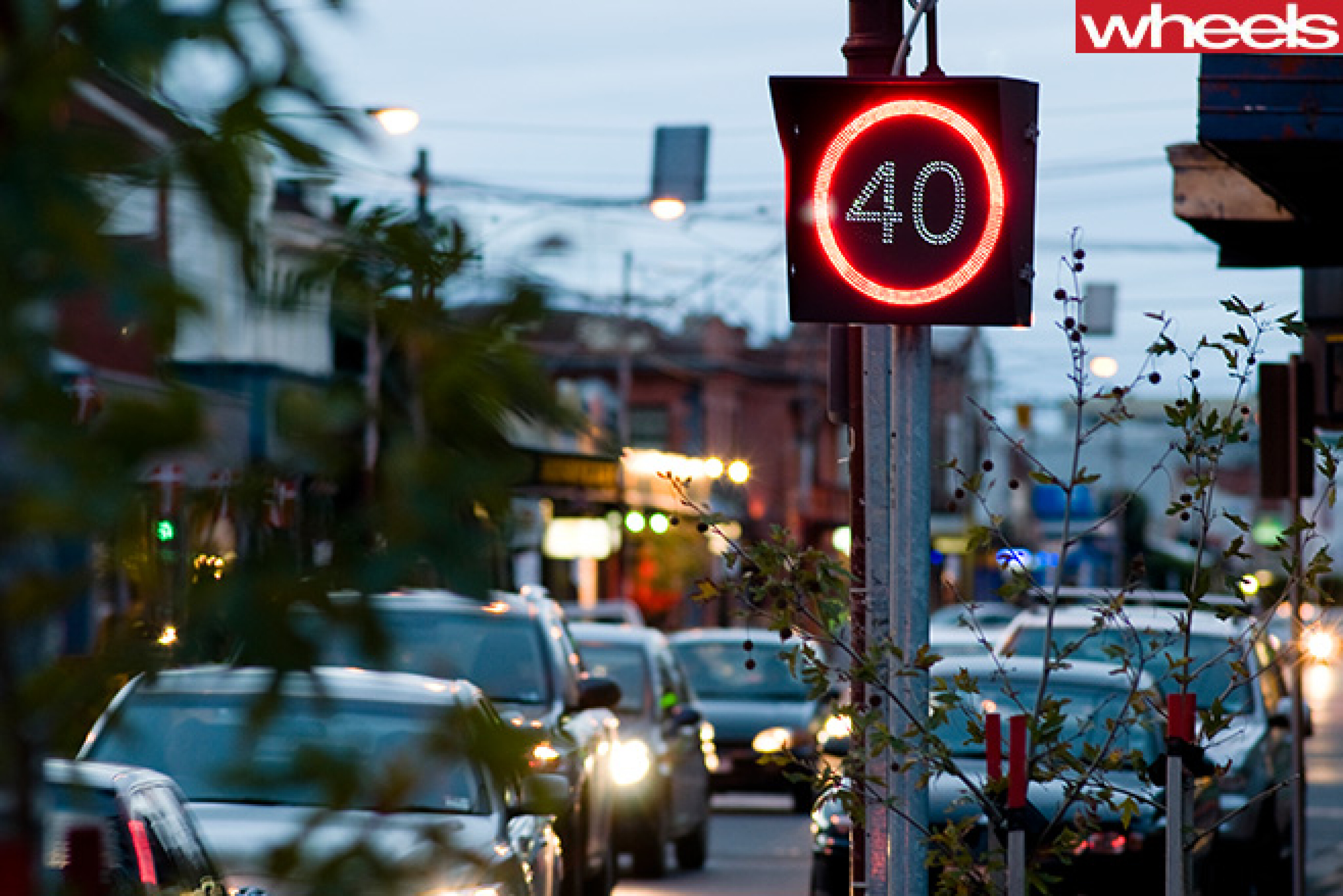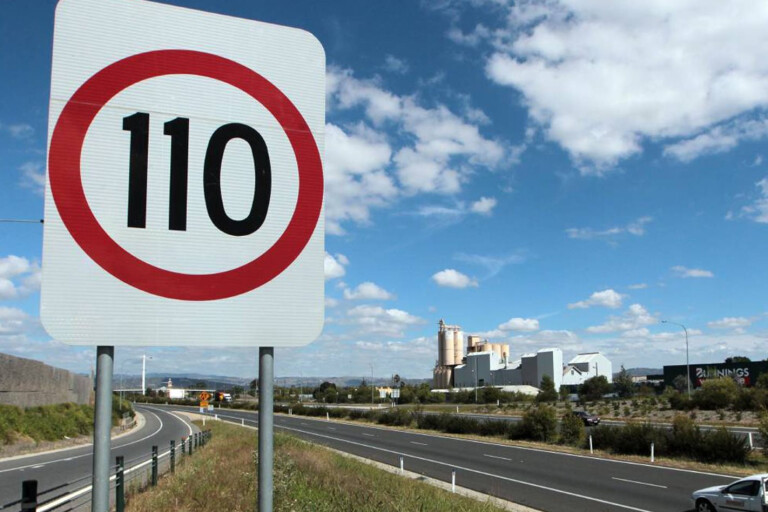
Since 2022, all new models launched in Europe must be equipped with Intelligent Speed Limit Alert technology, while all existing new models must have them installed as an update by 2024.
Australia was expected to follow, and now the US could be on the same path.
As reported in our earlier coverage below, the technology was made law for Europe in 2019, with bolder plans ahead for those systems to not only alert the driver if they're speeding, but also to slow the vehicle as needed.
Under the Morrison government of the time, Australia was understood to be preparing plans to follow Europe's lead, but there has been no announcements or comment offered in the time since.
Nonetheless, a number of new cars coming into Australia are now equipped with these alert systems. In most cases, the alerts are visual only, while others like those from Hyundai and Kia will deliver an audible alert whenever the identified speed limit is exceeded – determined through GPS and camera-based speed sign recognition.
These audio alerts can be disabled or lowered in volume, but it must be done each time the vehicle is driven, as the driver preference will be reset after each trip.
A spokesperson for Kia told Wheels at the recent EV9 launch that this combination of visual and audio alerts is a Euro NCAP requirement for a 5-star safety rating, but the organisation's assessment protocol is clear: "The warning shall be a flashing traffic sign used to communicate the speed limit or an additional visual signal adjacent to the traffic sign." A Hyundai product manager has since told Wheels the additional audio alert is merely the company acting in the best interests of its customers' safety.
In the United States, the country's National Transportation Safety Board (NTSB) has recommended all new models come equipped [↗] not only with alerts, but also the most extreme version of the technology, capable of slowing or stopping a vehicle as needed.
How far such a recommendation will get in "the land of the free" remains to be seen, of course, with many Americans holding their car keys as tightly in one hand as they do their firearm in the other. For its part, the US National Highway Traffic Safety Administration has not yet taken a position, and the NTSB does not have regulatory powers of its own.
What do you think of speed limiter systems being mandated to slow your vehicle if it detects you exceeding the limit? Tell us in the comments below!

2019: Speed limiters coming to Australia
Just like the seat belt and electronic stability control, speed limiters, among other safety technology, will become mandatory in Australian cars.
Earlier this week, the European Commission confirmed it passed legislation that will see a range of safety systems compulsory for cars sold in the European Union. The systems include intelligent speed assistance, alcohol interlock installation facilitation, advanced driver distraction detection, AEB, lane departure warning, and an accident recorder ‘black box’.
Wheels can exclusively confirm that Australia is in line to introduce similar mandatory requirements.
The cogs are already in motion, with the government currently sorting out the proposal for approval. The legislation that will be introduced in Europe from May 2022 requires vehicles not yet in production to introduce the systems effective from that date, and vehicles which are currently on-sale to have the technology fitted by 2024.

The legislation is not unique to the EU. As Wheels discovered, the proposal to introduce driver distraction-mitigation systems and speed limiters, which will warn the driver once the speed limit has been exceeded and have the ability to slow the vehicle down, has already been drawn up by the United Nations, of which Australia is a working group.
The list of requirements was described to Wheels as a ‘pick and mix’ for countries to choose from, though it is likely there will be a similarity between European and Australian requirements. It is also understood that the timeline for Australian legislation is close to that of the EU, through a staggered introduction.
Shared testing between ANCAP and EuroNCAP authorities has led to both cars requiring safety systems such as AEB and lane departure warning be standard equipment as part of the requirements to be awarded a full five-star rating. The European Commission estimates that at least 25,000 lives will be saved on European roads as a result of the legislation it is introducing.
ANCAP has already begun scoring Australian vehicles for speedometer accuracy; a key component of ensuring speed limiting technology can be introduced within time. The ‘Intelligent speed assistant’ system uses GPS data and sign recognition to provide advice on the speed limit, warning the driver when it is exceeded, with the ability to reduce engine power.
Two hurdles are speedometers, which can legally have a variance from the factory of up to ten percent below the indicated speed, and GPS and sign recognition, which still has a number of variables that manufacturers need to overcome.
Speaking with Wheels, ANCAP Chief Executive James Goodwin said the safety authority fully supported the move to make vehicles safer. Goodwin said that ANCAP’s early adoption of technology such as AEB and lane departure warning - and being a harsh critic of vehicles that failed to introduce the technology - has been key to safer vehicles and lowering the road toll in Australia.
“ANCAP supports moves to mandate these important safety aids, but the regulatory process can take time,” he said.
“In the interim, the voluntary fitment of these technologies is already increasing quickly through ANCAP’s consumer and market influence, with many of these features already required in order to score a high ANCAP safety rating – whether it be a passenger car, SUV, van or light commercial vehicle.”

COMMENTS